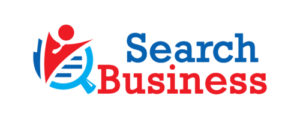When it comes to managing heating, ventilation, and air conditioning (HVAC) systems, especially those installed on rooftops, businesses and facility managers must rely on advanced HVAC platforms to ensure efficiency, cost-effectiveness, and environmental responsibility. These platforms serve as the central nervous system of your HVAC infrastructure, controlling and optimizing operations. In this article, we’ll explore the crucial features to look for in a rooftop HVAC platform, regardless of your location, to ensure your system’s optimal performance.
Remote Monitoring And Control
One of the primary features to prioritize in a rooftop HVAC platform is remote monitoring and control. This capability allows facility managers and operators to access real-time data and make adjustments from a central location. With the ability to monitor performance and tweak settings remotely, you can respond swiftly to changing conditions, minimizing downtime and energy waste. This feature ensures that your HVAC system remains efficient and reliable, reducing operational costs in the long run.
Predictive Maintenance
Preventive maintenance is essential for keeping your rooftop HVAC system in top-notch condition. Look for a platform that offers predictive maintenance capabilities. By analyzing data and performance trends, these platforms can predict when maintenance is needed, preventing costly breakdowns and reducing the overall cost of servicing your system. This feature not only extends the lifespan of your HVAC equipment but also ensures uninterrupted comfort for building occupants.
Energy Efficiency Analytics
For contemporary enterprises, energy efficiency and sustainability are critical issues. An efficient rooftop HVAC system should have analytics for energy efficiency that show trends in energy usage. You may cut operational expenses and energy consumption by making well-informed decisions by identifying inefficiencies and potential improvement areas. This helps the environment in the long run in addition to your financial performance.
Integration Capabilities
Your rooftop HVAC platform should seamlessly integrate with other building management systems (BMS) and smart technologies. Integration enables coordinated control of various building systems, such as lighting, security, and HVAC, leading to enhanced operational efficiency and cost savings. Ensure that the platform supports open protocols and standards, allowing for easy integration with existing infrastructure and future expansion.
User-Friendly Interface
A user-friendly interface is essential for effective HVAC management. Look for a platform with an intuitive dashboard that provides at-a-glance information on system performance. The interface should be easy to navigate and offer customizable reporting options. This ensures that both experienced technicians and newcomers can efficiently operate and troubleshoot the rooftop HVAC system.
Data Security And Privacy
With the increasing connectivity of HVAC systems, data security and privacy have become critical concerns. Ensure that the platform you choose prioritizes data protection. Look for features like robust encryption, user authentication, and secure remote access to safeguard sensitive information. Complying with relevant data privacy regulations is important, not only for legal reasons but also for maintaining the trust of your clients and building occupants.
Scalability And Future-Proofing
Finally, consider the scalability and future-proofing of your rooftop HVAC platform. As your business grows or technology evolves, you’ll need a platform that can adapt to changing requirements. Choose a platform that provides scalability options, allowing you to expand your HVAC system easily without the need for a complete overhaul. Additionally, look for providers that regularly update their platforms to incorporate the latest advancements in HVAC technology.
Conclusion
Selecting the right rooftop HVAC platform is a critical decision that impacts your building’s comfort, energy efficiency, and operational costs. Prioritizing features such as remote monitoring, predictive maintenance, energy efficiency analytics, integration capabilities, user-friendly interfaces, data security, and scalability will help ensure that your HVAC system remains reliable, efficient, and adaptable to future needs. By investing in a top-notch rooftop HVAC platform, you can achieve optimal performance and peace of mind, knowing that your HVAC system is in capable hands.

